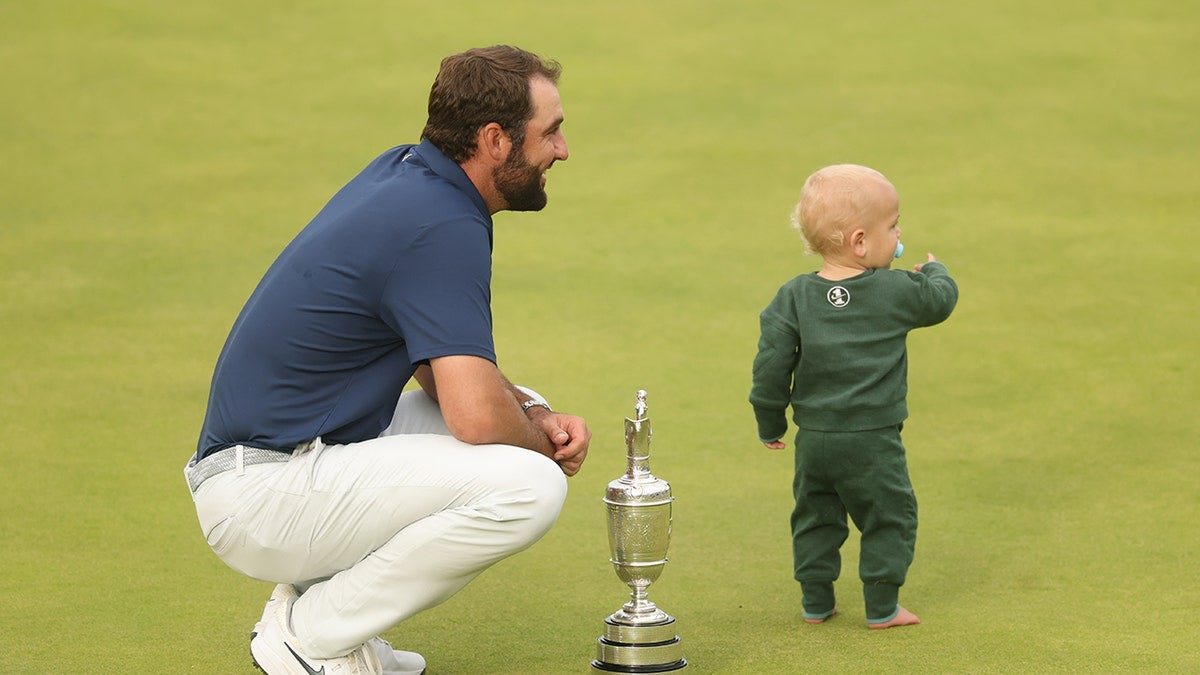Compass No.29
Scottie Scheffler's reflections on fulfillment and challenging yourself to see the unknown as a gift
Thought provoking quote
Dominant world no.1 golfer, Scottie Scheffler, won the Open Championship this past weekend, thereby securing his fourth major. Notably, he won his fourth major in the same amount of time from his first major, to the day, as Tiger Woods. With this most recent trophy, Scheffler has now obtained 3 out of the 4 majors necessary to complete the career slam.
Despite those pretty remarkable stats, the moment that stood out to me from the week was actually the answer Scheffler gave in his pre-tournament press conference when he was asked: "What would be the longest you've ever celebrated something and what was the most crushing loss?"
Rather than answering the question directly, what followed was the golfer’s much deeper reflection on the difference between accomplishment and lasting fulfillment.
A longer “quote” than usual this week, but I felt compelled to include the majority of his response. Highly recommend watching the full clip here.
—
"…you work your whole life to celebrate winning a tournament for a few minutes. It only lasts a few minutes, that kind of euphoric feeling. And to win the Byron Nelson Championship at home, I literally worked my entire life to become good at golf, to have an opportunity to win that tournament. And you win it, you celebrate. You get to hug your family, my sisters there. It's such an amazing moment. And then it's like, OK, now what are we going to eat for dinner?”
"You know, life goes on. It's great to be able to win tournaments and to accomplish the things I have in the game of golf ... it brings tears to my eyes just to think about, because I’ve literally worked my entire life to become good at the sport, and to have that kind of sense of accomplishment is a pretty cool feeling.
"But at the end of the day, it's like, I'm not out here to inspire the next generation of golfers. I'm not here to inspire somebody else to be the best player in the world, because what's the point?"
"This is not a fulfilling life. It's fulfilling from a sense of accomplishment, but it's not fulfilling from a sense of the deepest places of your heart. There's a lot of people that make it to what they thought was going to fulfill them in life. And then you get there, then all of a sudden you get to No. 1 in the world, and they're, like, what's the point? I really do believe that because, you know, what is the point? You are like, what? Why do I want to win this tournament so bad? That's something that I wrestle with on a daily basis. It's like showing up at the Masters every year. It's, like, why do I want to win this golf tournament so badly? Why do I want to win the Open Championship so badly?"
“I love being able to provide for my family out here playing golf. Every day when I wake up early to go put in the work, my wife thanks me for going out and working so hard. When I get home, I try to thank her every day for taking care of our son. That’s why I talk about family being my priority because it really is. I’m blessed to be able to come out here and play golf.
“But if my golf ever started affecting my home life or it ever affected the relationship I have with my wife or my son, that’s going to be the last day that I play out here for a living. This is not the be all, end all. This is not the most important thing in my life. That’s why I wrestle with, why is this so important to me? Because I’d much rather be a great father than I would be a great golfer. At the end of the day, that’s what’s more important to me.”

Question inspired by a recent essay
In last week’s essay, I reflected on the way the poet David Whyte writes about the importance of having a good relationship with the unknown. He contends that there is a reward in not knowing because if we were privy to exactly what would happen during these chapters of our lives, we would be more likely to run in the other direction rather than keep going.
If you find yourself paralyzed by the fear of the unknown, I invite you to reflect on the question: How could not knowing actually be benefitting you? What if the unknown wasn’t a monster or ghost but rather a kind of “guardian angel” protecting what’s possible?



